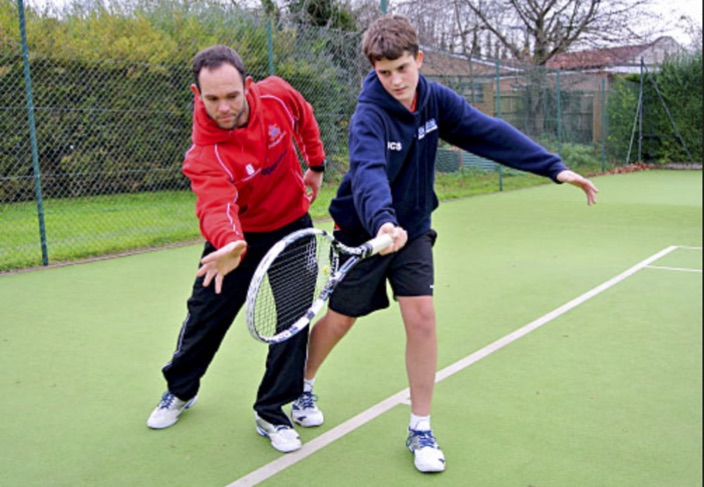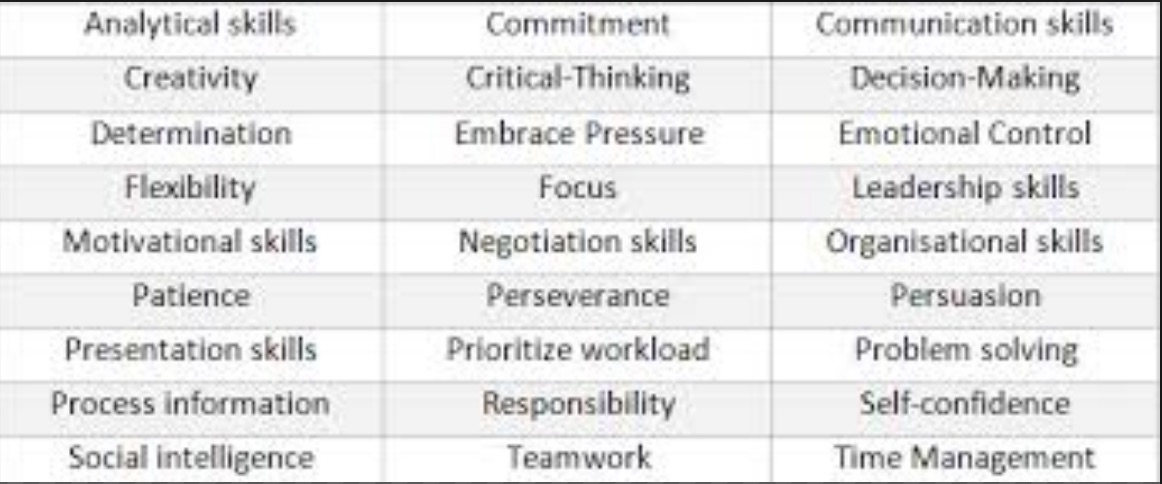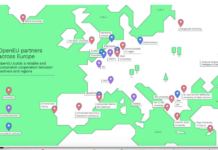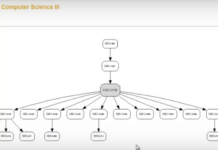
Bumping into neighbours outside a branch public library can sometimes stimulate a lot of thought. I ran into a fellow consultant (our neighbourhood is full of them) the other day, who made the following comment:
‘Our working group is struggling with differentiating between a learning outcome and a competency. I’ve been searching for good definitions of both terms over the years and have still not found anything that offers a clear and well defined difference between the two. The lack of consistent use of the terms is frustrating.’
She would like to put this question out to the community, and I am more than happy to do so through this blog post.
To get the discussion going (and since it’s my blog) here are some of my thoughts on the topic (but hey, it’s not all about me, so please use the comment box below for your contributions).
The problem with definitions in education
Language (or at least English) is dynamic and constantly changing. There is no Academie Anglaise that sets down rules (although my high school English teacher thought he could). Also, there is a danger when dissecting language that it becomes reductionist, somewhat akin to arguing how many angels can dance on the point of a needle. But it does help if when we use a word or phrase, most of us understand and roughly agree what it means.
Three terms being used a lot in education at the moment are ‘learning outcomes’, ‘competency’, and ‘skills’ (as in 21st century or intellectual). Asking what the differences are is a good question, and forces us to think more carefully about what we are trying to achieve in teaching and learning. So let’s have a thoughtful discussion about this (and passion is good, too).
Competency
I have a whole section in my book Teaching in a Digital Age about competency-based learning, which has gone through a certain amount of hype in recent years.
Definition: Competence is the ability to do something successfully or efficiently
Competence is thus the end state of a process. So I see a competency (in educational or training terms) as a pathway that leads to that end state of competence. Competence is something that crosses a minimum barrier of expertise, almost like an off-on switch. You can be 100% competent, i.e. do it right every time, and there’s nothing more to learn.
The essence though of a competency is that it is specific and measurable. Competencies are often determined in the context of workplace demands, the knowledge and skills needed to do a specific job or task.
(The European Union, to confuse matters, uses the term ‘competence’ to mean ‘competency’, with the plural being ‘competences’ instead of ‘competencies’. I’m just saying…..).

Skills
I like to make a distinction between competencies and skills, which makes things even more confusing, but I believe the distinction is important. In particular, I am talking about intellectual and cognitive skills, such as critical thinking, problem-solving, analysis, communication, and decision-making. I argue that these go beyond mere competence.
A good sportsperson is not just competent but highly skilled. They never stop learning and progressing in a particular skill. Competencies are short term and specific; skills are long-term and more difficult to pin down. Indeed, one important element of a skill is the ability to improve on past performance, or even to innovate, whereas competencies are usually clearly defined and limited in scope.
Being long-term and more difficult to pin down of course makes assessment of skills and skills development more difficult, but nevertheless still necessary. There are also implications for curriculum planning: how do you progress a skill such as critical thinking from year 1 to year 4, so that when students leave college their critical thinking skill is much better, and can continue to progress after graduation? A recent study by the Higher Education Quality Council of Ontario found no progression in undergraduate students’ critical thinking from Year 1 to Year 4, compared with gains in numeracy and literacy. This might be a consequence of the method used to assess critical thinking (you need to bed such skills within specific subject domains) but it raises a good question: what teaching methods best encourage critical thinking, and how do you measure its progression over time?
These questions become increasingly important in a digital age, when the core demands of not just the workforce but society as a whole in a digital age is the development of such skills to bridge technology and humanity (see the Royal Bank of Canada’s Humans Wanted report.)
As always in discussions of this kind, it comes down to epistemology. Competency-based learning assumes that knowledge can be codified, repeated and tested; in other words it is more objective or behaviourist in its approach. Those (like myself) who argue that skills are more dynamic and developmental, take a more constructivist approach. It should not be surprising then that the approach to intellectual skills development tends to be more open-ended, less defined and more random.
Nevertheless this should not excuse instructors from thinking more specifically about how best to develop and measure intellectual skills, and apply best practices, such as graduated steps of difficulty, regular practice for learners, expert and timely feedback, long-term development throughout a program, and authentic assessment.
Lastly, this is not an either/or argument. There will be circumstances where competency-based education is wholly appropriate, and others where skills development is more important. If we define different stages of skills development too narrowly, they may well be better described as competencies. However, transversal skills, skills that can be valuable in many different job contexts, and also in life in general, are likely to be more valuable in the long run than short-term competencies – but as Maynard Keynes said, in the long run we are all dead.

Learning outcomes
I see both competencies and skills as possible learning outcomes, but they need to be defined and measured if they are to become a learning outcome. Also, competencies and skills are not the only possible learning outcomes. For instance, knowing all the parts of a body is a learning outcome, but not really a skill or even a competency. Too often competencies are defined in terms of just knowing, when in fact they should be about being able to do something well. Too often skills are not defined in terms of a learning outcome that can be measured – or rather the measurement is decided at the time of assessment by the instructor (‘I’ll know it when I see it’) which is not much help to learners trying to develop such a skill.
Thus I make another somewhat arbitrary distinction between content and skills/competencies. Both are necessary – you need to know stuff (parts of the body) to be able to solve problems (diagnosing a fracture), for instance, but the learning outcomes are quite different.
However I would argue that overall, the balance in most higher education instruction is on mastery of content (a learning outcome) over the development of skills (or even competencies, except perhaps in professional subjects such as nursing and engineering). This balance needs to be reversed if the needs of learners in the 21st century are to be met. Intellectual skills development is in my mind the key priority (or learning outcome) for teaching and learning in the future, at least at university level, and we need to approach this is in a thoughtful and professional manner.
Over to you
What do you think is the difference (or similarity) between competencies and learning outcomes?
Do you see a difference between competencies and skills?
Do we need to change the balance of learning outcomes from content mastery to skills development?
Do you have anything else to say about these issues?
If so, please add your comments in the comment box below (scroll down until it appears) – or you can hang out outside the Kits’ branch library between 10.00 and 11.00 am, since I go to get my caffeine fix then.
References
Finnie, R. et al. (2018) Measuring Critical thinking Skills of Postsecondary Students. Toronto: Higher Education Quality Council of Ontario.
Royal Bank of Canada (2018) Humans Wanted Toronto ON: Royal Bank of Canada









 Dr. Tony Bates is the author of eleven books in the field of online learning and distance education. He has provided consulting services specializing in training in the planning and management of online learning and distance education, working with over 40 organizations in 25 countries. Tony is a Research Associate with Contact North | Contact Nord, Ontario’s Distance Education & Training Network.
Dr. Tony Bates is the author of eleven books in the field of online learning and distance education. He has provided consulting services specializing in training in the planning and management of online learning and distance education, working with over 40 organizations in 25 countries. Tony is a Research Associate with Contact North | Contact Nord, Ontario’s Distance Education & Training Network.


In the USA there is, I believe, a caste implication to the terms. As one who has spent his academic life in an aggressively research institution here’s my perception of how my faculty colleagues would organize these.
Research Institutions: Focus on learning outcomes – aligned with “Education”
Community Colleges: Learning Outcomes + Competencies – Aligned with “Education” + “Training” + “Job Ready”
Workforce: Skills – aligned with the dreaded “training” to produce “Job ready”
Thanks, James – great comment!
Food for thought as usual Tony.
Your comments lead me to think and rethink how we base components of the AQF (Australian Quality Framework). All too often the phases used are knowledge, skill, competency and capability, but reading the above the order should be knowledge competency (at the point of time of determination), capability and skill, where skill is the continual review of the competency, ongoing practice and refinement where required.
Within my area of Public Safety (Emergency Management), one’s skills are always challenged where ion always needs to adapt knowledge and competency in order to achieve the desired outcome enabled by a capable and skilled practitioner. While my specialty is Disaster Management, no two events are the same, nor can they be repeated, as the makeup and decision making of a team will always be different for no other reason that all members will bring different past experiences on similar incidents or events.
Down Under many educators are now using a term “lessons learned”, however unless undertaken at the competency level for determination, is impossible to achieve. What we have are “lessons observed” then analyse the outcomes and adjust systems / processes / training to meet any identified discrepancies.
A great opportunity to go away and rethink some of the systems and processes within my area of specialty.
Many thanks for these really helpful comments. I agree we are dealing with a multi-layered set of concepts. I agree there is no one ‘correct’ definition. From a teaching point of view we need to focus on the outcomes and the different routes to that outcome.
Interesting read. I too have been thinking of how to define the three terms in a meaningful way so that teachers and students understand it and can measure it to some extent.
Learning outcomes: written with the perspective of what the students can do by the end of their learning.
Capability: have they understood the content and concept. More about acquiring knowledge
Competency: how will they be able to apply their learning in a real life situation. Perhaps creating new knowledge in context.
Skill: how can they keep getting better.
For eg: if self management is a competency, the students would need to build multiple skills such as goal setting, time management, etc over time to be able to show their competency
Many thanks, Sapna – great comments
It is always likely that similar terms are developed that arise form different sectors of activity or the same term is given slightly different meanings.
For me learning outcomes are goal setting devices used within formal and sometimes non formal education, set by a teacher to guide students.
The word learning covers a multiplicity of ‘things’ in that we can talk of knowing what, knowing how, knowing when, knowing where, and knowing why etc about something. In measuring what is known we can adopt a more criterion based approach (I either know what the distance from the sun to the earth is or not; I know how to drive a car or not; I know why birds sing or not that lends itself to the competency based form of setting goals that have arisen out of the workplace or we can adopt a performative based approach (I know how to drive a car safely at speed around a race track; I know why birds sing but I can also identify birds from just their song and what the call is for- seeking a mate, defending a territory etc.) that lends itself to the skills based from of setting goals (learning outcomes). The former can be used to acknowledge gradations of competence by making the expected task more demanding, while the latter also acknowledges gradation of skills but at the same time tries to bring together skills in a developmental and synergistic manner rather than a tick box manner.
Interestingly the apprenticeship standards here in the UK use Knowledge, Skills and Behaviours as the three sets of attributes. So, my conclusion is that we apply different notions of the attributes we want to see depending on the context but it is only in education that we set these out as learning outcomes.
Many thanks, Andy – a really helpful contribution to the discussion
Thank you for the invitation (and opportunity) to take part in this discussion. It is fascinating actually. When reading the heading, I thought I had it all clear in my mind, but I should admit that I realised that I may be slightly more confused than I thought. However, I am going to try to verbalise my understanding (albeit a confused understanding).
I see skills as part of the following set: “knowledge”, “skills” and “attitudes” – as mentioned by UK colleague Andy Lane above. In that sense skills are something that you demonstrate by doing/performing an action. This can be a physical skill or an academic skill such as compiling a questionnaire. I always thought that “competence” is something “larger” than a skill (almost a combination of knowledge, skills and attitudes”. Compiling a questionnaire is just but one skill (one part) of being a competent researcher.
This understanding could be closely linked to Merriam-Webster (https://www.merriam-webster.com/dictionary/competence) definition of “competence”, namely
“the quality or state of being competent: such as
the quality or state of having sufficient knowledge, judgment, skill, or strength (as for a particular duty or in a particular respect). Example provided: No one denies her competence as a leader.
To have competence as a leader in other words, you have to demonstrate many different skills at once (integrated). This links to the last paragraph of Sapna Yadav above I think.
Having said this, I take note that “Competent” is but the middle of five levels of Dreyfus’ model of skills development (explained at: https://www.toolshero.com/human-resources/dreyfus-model-of-skill-acquisition/).
I like the explanation above that (whether skills or competence), it is only in education that we formulate these as learning outcomes.
Terrific comment, Marena. Really helpful and interesting
I’m reading all of these comments with great interest as I’m the neighbour that Tony bumped into in the neighbourhood.
The lack of consistent use of terminology is what I find frustrating as I work as an instructional design consultant around the world and the language just keeps changing. I’m ok with working out a shared language at the beginning of every project, but with the focus on integrating competencies into university programs and also using them to create micro-credentials, the need for a shared understanding is becoming more pressing. Or is it ok to deal with wild variation in terminology as long as organizations define the terms for themselves?
I’m really interested to hear how people wrestle with this.
Many thanks for this, Carolyn – and for starting a great discussion initially
I read this blog with great interest. First, I would like to say that my field of teaching is mathematics. Probably, the methodology is quite different in comparison with language education, but surely there are many common problems shared. There is high pressure nowadays from the regulators to point out the competencies, skills and learning outcomes in the syllabus of any subject. This creates a lot of pain in me and my colleagues:) That is how I got to this blog. The usual way we get out of that trouble is to write standard things like critical thinking, problem-solving, blah, blah and so on which is satisfactory for the regulators. Sorry for this confession, it is the reality. Yet, I don’t agree that the balance between the mastery of content and the development of skills in the university should be reversed. In fact, I don’t think it is possible. Here is what I mean. The content studied in the primary and secondary school is about say 10 % of the whole content (well, 10 % is more or less arbitrary). It is studied for about a dozen of years. For a year and a half I have to teach my engineering students 50 % of the knowledge in mathematics. It is highly compressed knowledge, there is almost no time for developing skills. It is supposed that the students are able to self-generate these skills and competencies. Otherwise, it will take 30 years (again arbitrary) of university study. I think that it is quite normal the balance in the university education if we trace the development of a student from the first class in primary school up to the last year in the university. First, the student is taught how to write letters, how to do simple arithmetics, i.e. skills without some particular content. Then the knowledge is accumulating with less time spent for skills. Finally, I see it normal the main weight to be put on the theory at the university. The development of practical skills is more time-consuming than teaching notions, theorems and so on. And usually there is no time. How do you address this issue?
Hello, I am three years late to the discussion but it is an interesting one! In some of our own (University) curricula, some learning outcomes list skills / competences (used interchangeably), for example being able to select and design process engineering systems and processes, or being able to manage workload. Other learning outcomes include understanding and knowledge which I would not classify as skills. For example, understanding “the impact of engineering solutions in a global context” or developing the knowledge and understanding of “The professional and ethical responsibilities of engineers.” These outcomes seek to develop a positive relationship between the student and society, or at least a capacity to reflect on responsibility. Uh-oh – “capacity to…” I guess that’s a skill then 😀 The distinction I would make here is between ‘critical skills’ and ‘practical skills’. Learning outcomes cover them all; the term could also include non-skills, especially if it were to list unintended and currently unlisted learning outcomes such as ‘passionate enjoyment of debate’, ‘confident belief that knowledge can be used to reduce suffering’, ‘deep love of jazz’ or ‘lifelong network of supportive peers’.
(learning outcomes taken from https://lucas.lboro.ac.uk/pub-apx/f?p=303:107::APEX_CLONE_SESSION:NO:RP,107:PROG_CODE,PROG_YEAR,SPEC_YEAR:CGUB01,23,23#lo, accessed 30-10-2023)
Many thanks, Yvonne – great comment